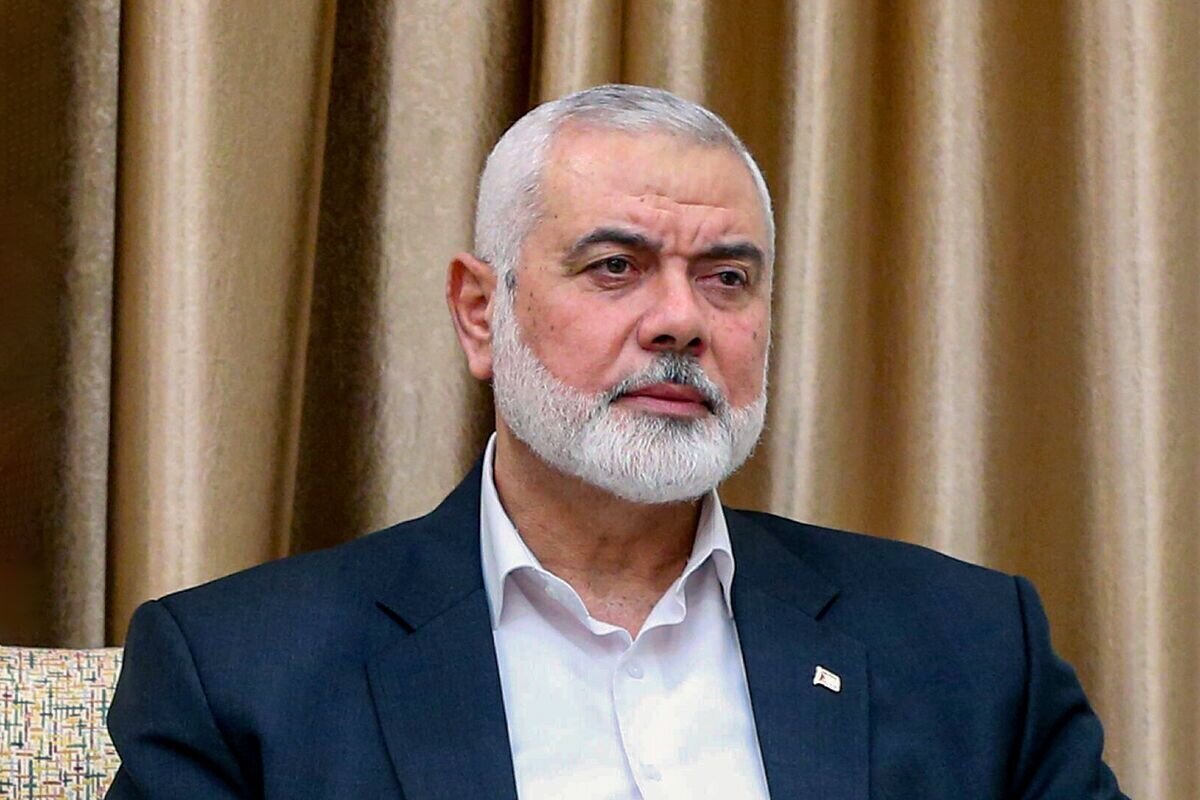What's Israel's goal in spreading false narratives about Haniyeh assassination in Tehran?

TEHRAN – The Hamas Resistance movement has refuted Israeli claims about the assassination of its late political bureau chief Ismail Haniyeh, stating that he was killed by a guided missile targeting his mobile phone, not a planted bomb as Israel alleges.
In a statement on Sunday, Hamas rejected all "fabrications" by Israel, clarifying that joint investigations with Iranian authorities revealed a missile containing 7.5 kilograms of explosives was used. Hamas also condemned the assassination as a violation of Iranian sovereignty.
“The claims made by the Zionist regime are only a desperate attempt to divert public opinion from this multi-layered crime, which has been committed by clearly violating the sovereignty of the Islamic Republic of Iran and targeting one of the country's official headquarters,” the group’s statement added.
Haniyeh was martyred on July 31 in a Tehran guesthouse, hours after he had attended President Masoud Pezeshkian’s inauguration.
Earlier, Israeli Channel 12 said it was releasing new details about the assassination under authorization from the regime’s military.
The report claimed that Haniyeh had been under surveillance, with multiple sightings at the location of his assassination. Mossad agents, the channel claimed, planted a bomb in his room before the inauguration of the new Iranian president. The operation was nearly derailed by a malfunction in the room's ventilation system, but it was repaired by the Iranians, allowing the attack to proceed. The channel also noted that "the initial plan was to target him during his attendance at the funeral of Iranian President Ebrahim Raisi, but it was later abandoned."
This report follows the Israeli War Minister's first-time admission of responsibility for the assassination after Israel's Western allies had previously denied its involvement in response to Iran's retaliation.
Hamas representative in Tehran Khaled Ghoddoumi told the Tehran Times that Israel's new lies surrounding the assassination of the late Haniyeh are designed to serve three purposes: to avoid accountability for the crime, to foster unease about intelligence vulnerabilities, and to create divisions between Iran and Hamas.
Israel's uncharacteristic admission of responsibility for the assassination is a sign of the regime's mounting desperation, Ghoddoumi added. “Immediately after the attack, the Israeli military spokesperson denied all knowledge of the events and Haniyeh's martyrdom. However, the subsequent decision to claim responsibility was a consequence of the substantial losses the regime has experienced since that time.”
Leave a Comment